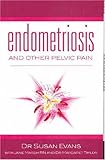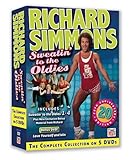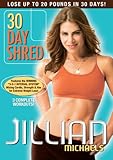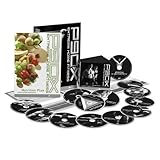How often do you see articles on how to lose weight? I am guessing this is on a daily basis, either in magazines or on the television. But for many people losing weight and being overweight is not the problem, in fact they suffer the complete opposite problem, and that is how togain weight.
I grew up always being the skinny kid in class, the one teased and called 'stick insect' (even though I was short in height). It used to really annoy me to see numerous articles in magazines about losing weight, (as if that was the only problem anyone had to endure), when all I desperately wanted was to be a normal weight for my age, and not the 'skinny runt' I was so often accused of being by the kids I went to school with.
Being too thin is not a luxury, it is a horror that is just as traumatic and stressful as being too fat or overweight. It is very frustrating that few magazines or television programmes and documentaries address this very real issue that many people deal with on a daily basis, much like I did.
I spent most of my childhood and teenage years trying to find ways to gain enough weight to be considered 'normal' and stop being called 'feeble' by my fellow pupils at school. I used to break down in tears in bed at night, unable to find a solution and sick of being teased and bullied for being too thin. I knew that a lot of my problem with low weight stemmed from the fact I was not only a very fussy eater and there were not many foods I liked, but also I was someone who only needed four or five mouthfuls of food and I was full. Due to a load of stress in the family with my Father suffering from severe ill health, combined with the bullying I was receiving at school, I burned off what few calories I ingested from stress, (or you could say a high metabolism as a result of stress).
Overweight people (mainly women) seem to be jealous or even resent thin people a lot of the time (although not always), not realising that the 'skinny' and underweight person is just as miserable in an underweight body as they are in an overweight one!
Many people do not realise that statistically it is harder to gain weight than to lose it! I found this out when I did my own research into how I could make myself gain weight to a sensible level where people would not tease me or make cruel and nasty comments about my excessively slim build.
I went through my entire education underweight, as in spite of eating as many fattening foods (such as peanuts) as I could, and going to bed each night with cheese and full fat milk as a snack, my weight varied little. I left high school weighing under 7 stone, (98 pounds or 44.45 kg) at a height of 5' 3" (160cm).
You might as a reader be suffering the same problem, and be equally frustrated by the fact everyone seems to be complaining about being overweight. The media seem to completely focus their attention on those who need, or want to loseweight. No-one appears to take those who need, or want to gain weight, seriously!

Well the good news in my case is that I did ultimately manage to get my weight within my ideal range based on my BMI, (body mass index), although it did take me a number of years, (in fact I was in my thirties when I finally managed to get my weight stable at about the correct level). I achieved this ideal weight based on a number of different lifestyle changes:
1) I started to eat foods I actually liked as opposed to being forced to eat foods I didn't like by my parents.
2) I was happy in my relationship with my boyfriend and this relaxed me enough to actually 'get hungry'.
3) I stopped smoking cigarettes (a habit that I began even when underweight, and this completely destroyed my already small appetite).
4) Later in life, (having by then started taking recreational drugs to improve my appetite), I stopped smoking Cannabis / Marijuana because although at first this appeared to give me an appetite, these effects had worn off the more I smoked, so I actually ended up eating less.
5) I cut down on fizzy alcoholic or non alcoholic drinks because the fizziness and the volume of liquid simply filled me up leaving no room for food.
6) I ate more 'easy to digest' foods such as soups and cereal bars.
7) I ate little and often, (even though the 'experts' seemed to say regular 'spread out' meals were better, I could still only eat small amounts of food if I followed their recommendations, so most of the meal would go into the bin).
8) I chose highly calorific foods whenever possible, but still avoided fatty foods because I simply couldn't bear to have them in my mouth full stop.
10) I started to enjoy cooking as a hobby, and this encouraged me to watch 'appetite whetting' television cookery programmes, and of course have to taste foods I was cooking as they went through the cooking process. Like the expression goes 'Never trust a skinny chef'.
Today (Oct 2011), I am in my early forties, but over the years I have managed to go from a UK size 6, to a UK size 10 in terms of clothing, and I now weigh around the 8 stone mark (51 kg or 112lb), and that is without having had any children (due to internal issues). People compliment me on how much healthier I look, and how my skin and hair have even improved as a result of my weight gain. I feel so much better and more confident than I used to, and this is why I felt it was important that I shared my experiences, and in doing so spread the word that it isn't only people who are overweight who struggle, those who are underweight statistically and surprisingly, struggle even more.... Their plight is largely ignored by the media and dismissed as 'not a large enough problem to be newsworthy'. This is so frustrating for thin people, and it is totally wrong for it to be disregarded. Those of us who have struggled to gain weight need to make others sit up and take notice. Being skinny or thin is just as much of a problem as being fat or overweight, and we still need help to learn how to gain weight when we simply can't bring ourselves to eat, and we feel 'full' after a few mouthfuls. Overweight people appear to have more options, (although they are not necessarily all that safe), e.g. gastric bypasses, stomach staples, gastric bands etc, but what is the equivalent treatment available for a thin person desperate to gain weight whatever it takes?
next The Science of Weight Loss - Fastest Way to Lose Weight10 Signs of Weight Gain
Get Fit and Trim
How can I reduce bad and severe period pains and cramps?
























